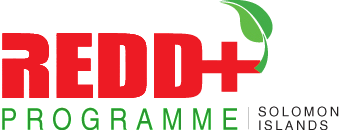
Between July and September 2019, the Ministry of Forestry & Research, in collaboration with SPC/GIZ REDD+ Project and the JICA Project on Sustainable Forest Resource Management, is launching a comprehensive Forest Inventory Piloting and Capacity Building Program which includes over 50 forestry officers, SINU forestry students/staff and community members. The activity is a preparation for the National Forest Inventory (NFI), planned to kick off next year, which is a comprehensive nation-wide forest assessment designed to provide holistic data to support informed decision-making towards the conservation and sustainable management of Solomon Islands forest resources. It is also a key requirement for a functioning REDD+ mechanism. The main purposes of the program are to build and strengthen the participant’s skills in forest inventory best practice and trial the proposed NFI methodology prior to its national implementation. The capacity building covers the most important elements and tools of a forest inventory such as sampling design, Geographical Information System (GIS), field instruments and measuring techniques as well data analysis. The objective is for participants to acquire the technical know-how to prepare and implement the NFI activity without the need of extensive technical support from overseas. The first part of the forest inventory training and field work was conducted at Komuniboli Village forest, Northeast Guadalcanal, which covers 350 ha of lowland and swamp forest. The latter can make fieldwork challenging, especially in wet weather when the forest becomes flooded. The data collected from the 20 sample plots will be used to analyze the NFI design and furthermore provide the basis for the development of a sustainable community forest management concept together with the right-holders of Komuniboli forest. Further field work and training will follow in Falake Pilot Site in Malaita in September/October.
- Details

Workshop participants in Kia Village Group work session at the workshop in Buala
Meeting with Provincial Premier and PS in Buala Workshop participants in Buala
REDD+ Solomon Islands, a Programme led by the Ministry of Forestry and Research (MoFR) has reached out to Isabel province, raising awareness and informing the rural communities of the initiative.
The Provincial Premier of Isabel and provincial staff, Chiefs and Elders, Church representatives including the private sector were informed and consulted on REDD+ through the awareness program. Rural communities and people of Kia are also fortunate to be informed of the progress and roles as stakeholders during REDD+ preparation at the national, provincial and community level.
The awareness raising campaign is a joint, cross-sectoral effort by the Solomon Islands Ministry of Forestry & Research, the Ministry of Environment, Conservation, Climate Change, Disaster Management and Meteorology (MECDM), and the Ministry of Agriculture and Livestock, with support from the regional SPC/GIZ Program REDD+ II.
MoFR Deputy Commissioner of Forest, Terrence Titiulu emphasised the status of forests in the country and the trend of overharvesting that may soon not be able to sustain the country’s important forest sector revenue , which is a grave concern. “This is one of the reasons why we urgently need to find alternatives and REDD+ is one promising option for the forest sector the government is looking into."
According to MoFR Permanent Secretary Mr. Vaeno Vigulu, REDD+ is a new programme and a recommended measure for mitigation and adaptation to climate change which needs to be tested to fit our local setup and our country’s particular circumstances: “The implementation will take time as resource owners will have to be well aware of the disadvantages and the advantages so that they can make an informed decision.
“REDD+ means that forests will be rehabilitated, and some areas protected, and unsustainable activities will be discontinued to allow for the carbon sequestration to take place and reduce our carbon emission to the atmosphere.”
In this context, awareness raising is very important to create the basis for kicking off and relaying REDD+ information to the general rural populace as key to getting this initiative going.
– MoFR Press
- Details

